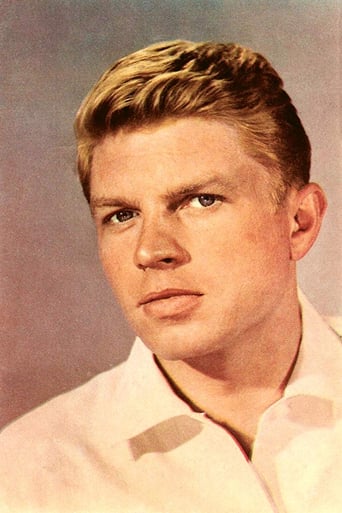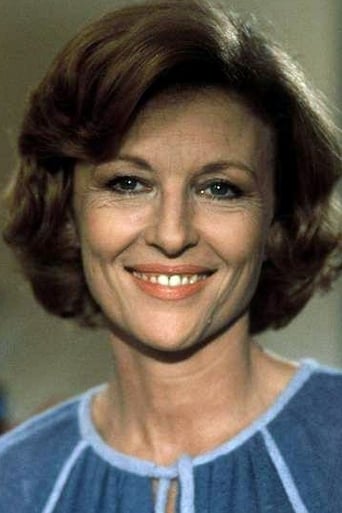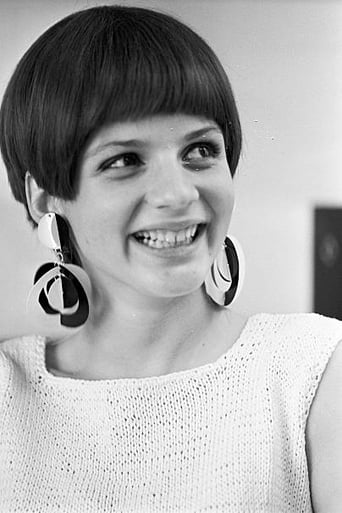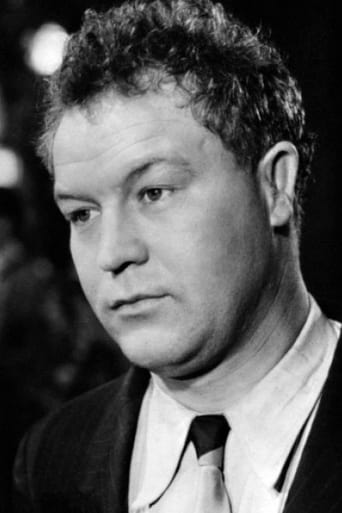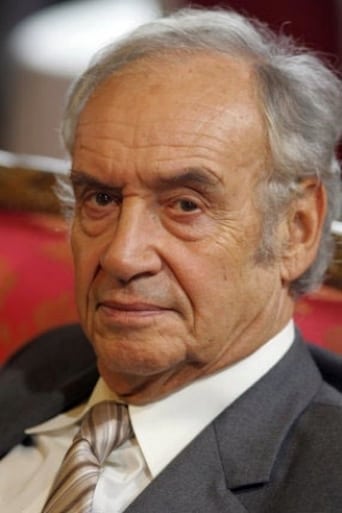WasAnnon
Slow pace in the most part of the movie.
Nonureva
Really Surprised!
Rosie Searle
It's the kind of movie you'll want to see a second time with someone who hasn't seen it yet, to remember what it was like to watch it for the first time.
Celia
A great movie, one of the best of this year. There was a bit of confusion at one point in the plot, but nothing serious.
tintin-23
This film's subject was risqué fifty years ago, and it remains so even now. How can one make us believe in the delicate charm of this wondrous love story between Pierre (Hardy Krüger) a shell-shocked, amnesiac, thirty-something man and a lonely twelve-year-old child, Cybèle (Patricia Gozzi) without promoting or raising the specter of pedophilia? It is the intense love story of incredible purity, a love that the cynical adult world cannot understand and will eventually condemn. Reading this film's synopsis, one immediately thinks of Lolita, except for the fact that in Sundays and Cybele the adult man is not the sexually obsessed Humbert Humbert and the young girl is not the treacherous nymphet, Dolores Haze. Under Director Serge Bourguignon, Sundays and Cybele becomes an authentic masterpiece, deeply moving, a film touched by grace and poetry, which is made even more miraculous by its controversial subject.The relatively small cast is brilliant, starting with Patricia Gozzi's extraordinary portrayal of Cybèle as an extremely feminine, intelligent, and enchanting little girl. She plays this character with astounding insight, evoking the apparent understanding of a mature woman. Her attachment to Pierre is a mixture of her budding sexual stirrings and of the impulses to reach for the male affection she has never known in a loveless, broken home. Gozzi is without a doubt the finest child actress I have ever seen. Hardy Krüger fulfils his difficult role of Pierre with panache, as a misfit on the margins of society. He portrays a man whose life has been shattered, and who is desperately trying to find a way out of his amnesia and vertigo, to start anew, and in the process of his healing, Pierre becomes as much of a father to Cybèle as he is her big brother, her boyfriend, and even her son.Nicole Courcel, as Madeleine, acting underscores her well-deserved reputation in the role of a loving and understanding mistress who has brought Pierre to physical health and is patiently trying to restore his mental health through her unconditional love. Daniel Ivernel, as Carlos, is also excellent in his role as Pierre's best (and only) friend and confident, a man who has tried to understand and accepted his friend's relationship with the young girl.Sunday and Cybele is based on the eponymous novel by Bernard Echassériaux. This was Serge Bourguignon's feature film debut (and what a debut!) and it became his magnum opus. Besides the grace of the cinematic conceit and the dialogue, Bourguignon's mise-en-scene is praiseworthy from beginning to end: instead of physically and literally recreating an imaginary world, he suggests its reality through its magic. For example, there is a traveling framing of Pierre's and Cybèle's reflections in the water rather than on them directly, as well as the many contemplative shots of nature during which the dialogue is superimposed. The camera behaves as another character, a silent witness intimidated by their love, who does not dare to look them directly in the eyes, lest their innocence be corrupted. With these simple effects, Bourguignon renders the beauty and purity of their union – and also its fragility. The film puts great emphasis on intimate, silent scenes, such as the walks along the pounds and in the forest, in the cold and the mist of the winter Sundays. Although this film was made during the birth of the Nouvelle Vague, Bourguignon's film is closer to the poetic realism of Carné, Renoir, and in particular the tone in René Clément's Forbidden Games (1952). The setting is Ville d'Avray, a small community near Paris which at the time of the filming had still retained its rustic setting, its forest with its hunting roads and famous pounds which so inspired the painter Jean Batiste Corot. The sublime photography in black and white is by Henri Decaë, who has 84 films on his résumé, including such memorable films as Louis Malle's The Lovers (1958) and François Truffaut's The 400 Blows (1959). Maurice Jarre's discreet and beautiful musical score, together with a very appropriate old French song ("Aux marches du palais"), and other musical excerpts ranging from Tibetan music to works by classical composers including Thomaso Albinoni and Marc-Antoine Charpentier, and exquisite natural sounds, creates an other-worldly, timeless atmosphere.As mentioned above, the film's subject, the relationship between an adult man and a young girl, might be extremely controversial. Although no sexual relation is ever suggested between Pierre and Cybèle, their relationship being primarily emotional in nature (in Greek mythology, the goddess Earth Mother Cybele had a eunuch mendicant priesthood). Nevertheless, many viewers and critics were none the less shocked and outraged. Times have not much changed: at a recent screening of the film at a ciné-club a few years ago, many viewers were appalled that such a "eulogy to pedophilia" could be shown. The strength of Bourguignon's film is the subtlety and sensitivity with which the subject is handled. He never looks for the shocking or the melodramatic, or poses himself as a moralist. He is simply an emotional witness to the story where a child who has grown perhaps too fast and an adult who has reverted to childhood meet and emerge from their individual loneliness. Bourguignon distances himself from the melodramatic by adopting an outsider's point of view: his genius has been to put the viewer in the position of Madeleine and Carlos, rather than that of Pierre and Cybèle. Choosing the latter for the viewpoint would certainly have been detrimental to the film, manipulating the viewer's emotions to the extreme. Following Bourguignon's suggestion, we should become a Madeleine or a Carlos, merely observing, and through our observations, try to understand
Eumenides_0
Pierre, a soldier traumatised in Indochina for killing a child, lives in ghost-like existence. Amnesic, detached and distracted, he spends his days at a train station waiting for his love, Madeleine, to come from work. One day he meets a lonely girl interned in a school and plots an ingenious plan to get her to see every Sunday, by pretending to be her father come to take her out. These two figures, abandoned as they are, are perfect for each other.Serge Bourguignon's Sundays and Cybele is one of those intimate dramas built on almost nothing, so simple and straightforward it is. The movie focuses almost exclusively on Pierre and Cybele, their strolls to the park, and the emotional relief she gives him.The black-and-white cinematography complements the story perfectly, since Pierre's world is also one of dualisms: life and death, adult corruption and youthful innocence, honesty with Cybele and deception with everyone else.Hardy Kruger plays Pierre with feeling, looking like a man who lives lost in a world he's cut off from. He has trouble communicating his ideas and expresses himself with facial expressions and his clumsy body movements. Patricia Gozzi plays the 12-year-old Cybele and I wonder why she didn't triumph in film: at a tender age she showed more talent than many adult actors.Melancholy, serene and introspective, Sundays and Cybele is a drama not to be missed by anyone who enjoys quiet movies built on powerful relationships.
Manicheus
One of the most beautiful cinematic statements against human small-minded prejudiced brutality. Beautifully shot in very crisp black and white. The imagery will definitely remain lodged in viewer's head for ever. It's a triumph of loving kindness and friendship over prejudice and hatred that indeed know no borders and are more or less alike anywhere on this planet. Sad News From A Strange Planet? I can't remember exactly but that was the title of a chillingly brilliant Herman Hesse story. It stems from the same universal human wound: the sadness of what we do and very frequently are as opposed to what we should and could have been in our starry essence.The France was never more melancholy, never more beautiful. I mourn her loss and I mourn the loss of films that would evoke as much humane and poetic feeling.
allenmac1
---is what many an adult woman might call the result when a man she loves develops a romantic entanglement with what we call a child (in any case, as in this one, a little girl). Generally presumed to be sexual on its face, such a relationship seldom involves actual sex, but always an emotional intensity which is often, even commonly lacking from the carnal attractions of a man and woman. It is this the grown woman cannot engender, thus she envies the little girl who can. Ironically, the younger female is jealous of the older woman's capacity to possess the man sexually, and has little need nor understanding of the more complex feelings the man might have for her. Needful of both, the man usually ends up with neither, as the battle of the sexes AND the dictates of society practically foreordain.So it is with Hardy Kruger and Patricia Gozzi, star (actually railroad station)-crossed lovers in Sundays and Cybele. Kruger served as a fighter pilot in the French air force in Indo China (Vietnam), and was wounded and traumatized in a crash in which a little Asian girl was killed. Gozzi as we meet her is being dumped in an orphanage in a Paris suburb by her harried father, who tells her it's only temporary but actually plans to abandon her, a fact which Kruger learns from eavesdropping and a letter. He follows father and daughter to the orphanage from the train station, a regular hangout of his, and notes that the father hurries off before a nun answers the door. Later he goes back, poses as the father to get the girl out on Sunday afternoons, for outings in the local area and, though it is winter and most uninviting a venue in which to form a friendship, in a park. The girl, desperately lonely, goes along with the deception, senses wound and need in the Kruger character matching her own, and they form a strongly symbolic and generally childish friendship.Alas, Kruger lives with a girlfriend, a nurse, and she is a knockout who knows his history and has taken it upon herself to restore the man she loves to health. Alack, it's no use. Kruger retreats from her, steadily and completely, to his fantasy relationship with the child. He is troubled by dreams and flashbacks, and noises set him off. He begins to frighten the child on the Sunday outings as she divines the extent of his mental problems, so she decides they should be "married." Others in the park and on the street pick up on the liaison, and assume the worst, which sets off a chain of events that turn the "wedding ceremony" into a tragedy.Sundays and Cybele is one of a long line of international movies that misses the boat in depicting adult/child romantic attachments, tailoring the plot elements to conform with popular notions of both the adult and the child which are at best misguided, and at worst, as in this case, a guarantee of unpleasantness and tragedy. The adult in these films, from Peter Lorre in 'M' to the chimney sweep in Emma's Shadow to the Ian Holm portrayal of Lewis Carroll in Dreamchild to Louis Gossett Jr. in Sudie & Simpson, must either be severely neurotic, a social or racial outcast, mentally retarded or outright psychotic. The child must be unloved and neglected, because how else (or why) could the adult manage to seduce or coerce the child into a relationship? "Just another love story" these tales might really be, but we have a deep need to see them as aberrations distinctly outside the pale, needful of retribution, punishments of both adult and child and, as happened to the Kruger character, needful of being put to death to insure the end of the relationship (or, as happened to Dirk Bogarde in Death In Venice, struck dead by the force of his own perversion and lustful iniquity).So Sundays and Cybele conforms, and it is to the credit of all concerned in the filming, particularly the 12-year-old Patricia Gozzi and director Serge Bourguignon, that it rises above its imposed cliches and attains the status of something like a bleakly beautiful cinematic experience.

